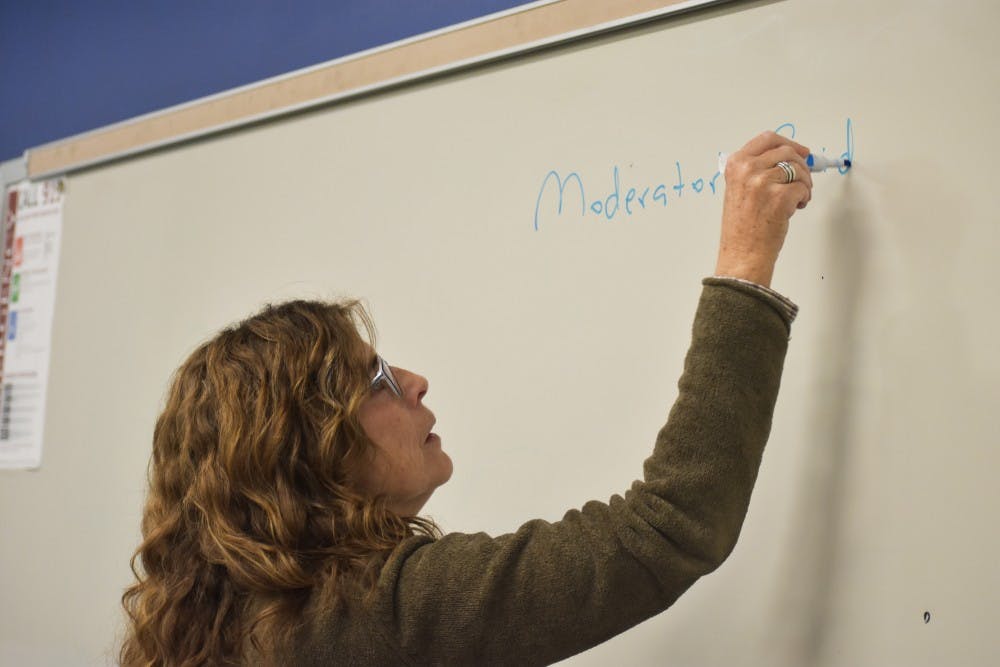One of Elon University’s 40-plus committees is the aptly-named the Committee on Committees, which oversees the 15 standing committees and connects them to the Academic Council.
Shared governance is a pivotal part of the committee’s work, according to Lee Bush, associate professor of strategic communications and the chair of the Committee on Committees.
Shared governance is a structure that the university puts into place to ensure the entire Elon community has an equal say on how the school is run.
“An integral part of this shared governance is Academic Council, the coordinating committee for the faculty, as well as numerous standing committees, advisory committees, special committees and task forces on which faculty, staff and students serve,” Bush said. “These committees are essentially the components that make up shared governance.”
The Committee on Committees is made up of eight faculty members of the Academic Council and is chaired by the standing chair-elect of the council. The committee acts as a bridge between the Academic Council and standing committees.
According to the Elon website, members of the committee include one representative from each of the three divisions of the College of Arts and Sciences, one representative from each of the four remaining schools and a faculty-ranking staff member.
Bush said serving on the Committee on Committees is a huge task because it supports more than 100 faculty members serving on 15 standing committees.
“It is an enormous undertaking to make sure those committees have the faculty members they need each year to keep their committees running smoothly,” Bush said. “Committee on Committees balances the need for faculty to find service opportunities that match their interests and abilities with the need to ensure that our committees effectively contribute to shared governance.”
According to the Faculty Handbook, the duties of this organization include collecting annual reports from the chairs of the standing committees, nominating faculty members for new openings or replacements on almost all committees and task forces and working with Student Government Association members to fill student positions on committees, among other things.
The Committee on Committees affects the day-to-day operations of the university by selecting qualified candidates to run the boards that work to make both learning and teaching at Elon enjoyable. Each committee member serves a term spanning two to three years with the Committee on Committees ensuring no slot remains empty.
The committees that are headed by the Committee on Committees range from the Elon Core Curriculum Council to the Student Life Committee. It also nominates members of special committees created by the Academic Council, such as the one currently in effect that is investigating student perceptions of the teaching of study abroad courses.
The organization effectively works to make sure all other committees have the resources they need to improve the university and are doing that job efficiently.
“All of these committees are an integral part of Elon’s shared governance model,” Bush said, “giving faculty, staff and students the opportunity to jointly establish, maintain and have input in academic policies and programs.”


